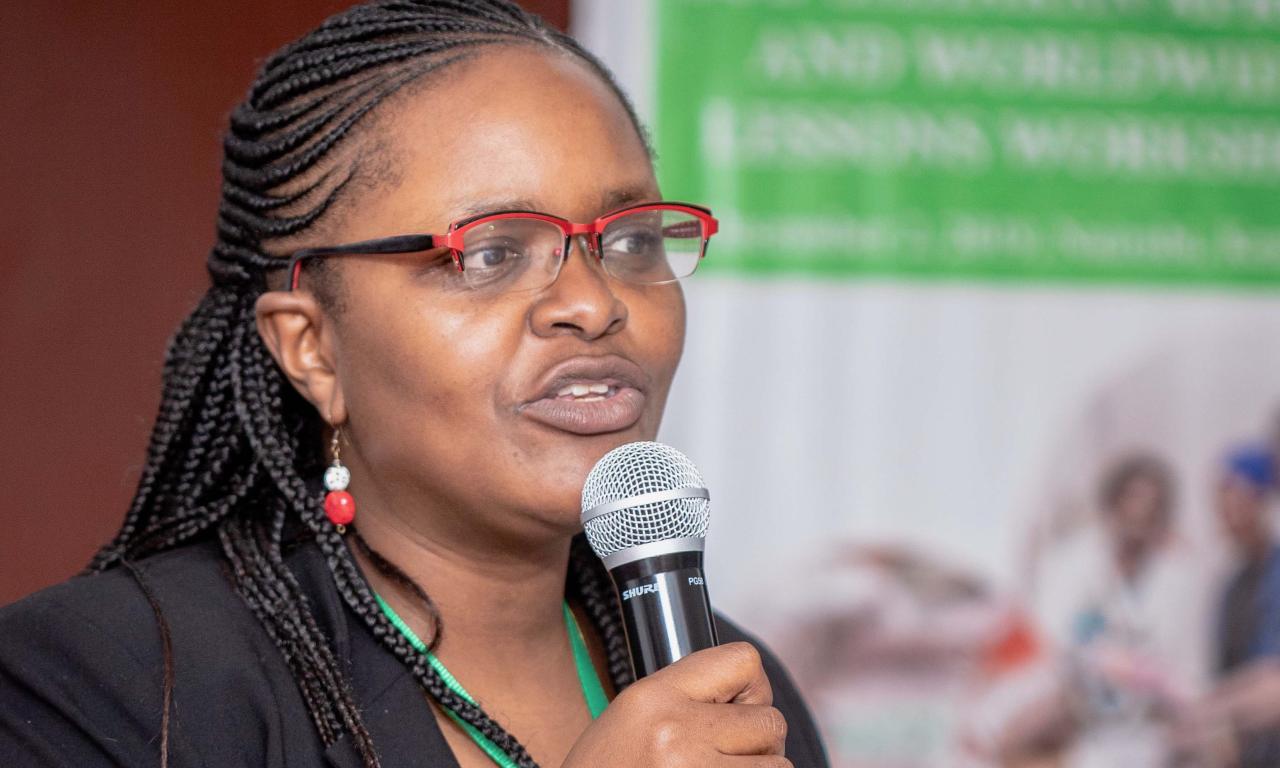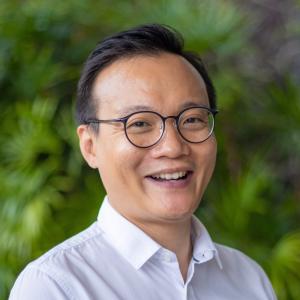
- WorldFish researcher Rahma Adam explains how her work can lead to policies that can change existing formal and informal structures
- Policies that are more sensitive and attentive to the needs of women and marginalized groups lead to a more equitable society and empower all women and girls
WorldFish and the CGIAR Research Program on Fish Agri-Food Systems (FISH) are global leaders in aquatic food systems research and innovation for healthy people and planet, and science and partnerships are the foundation of our work. Our team delivers robust evidence to policymakers and technological innovations to producers, value chain actors and consumers in order to transform food systems. In this series, we profile our accomplished scientists in the spotlight.
Rahma Adam is a social inclusion and market scientist, and the East and Southern Africa focal point for One CGIAR research and development at WorldFish. She received her doctorate in rural sociology from Pennsylvania State University, with a focus on gender, agriculture and international development. Adam obtained her master’s degree in public policy at Harvard Kennedy School. At Macalester College, she earned her bachelor’s degree in Biology with a minor in anthropology.
At WorldFish, Adam carries out strategic research on gender as well as gender mainstreaming research and development (R&D) activities. Her research focuses on value chains and market systems, particularly in aquaculture, small-scale fisheries and the blue economy.
What are you currently working on for WorldFish?
Currently, my work is divided into two main R&D activities. The first R&D activity focuses on carrying out strategic gender research in relation to aquaculture, small-scale fisheries and blue economy for the CGIAR Research Program on Fish Agri-Food Systems (FISH). My work has contributed to a FISH strategic brief being put together that outlines four pathways to improve gender equality and empower women in aquatic food systems.
The second R&D activity is to lead the gender strategic research and mainstreaming in the ‘Aquaculture: Increasing Income, Diversifying Diets, and Empowering Women in Bangladesh and Nigeria (IDEA)’ project. This USD 11.5 million project funded by the Bill and Melinda Gates Foundation is important from a nutrition-sensitive perspective. The nutrition of women, as well as their family members, will improve when women are in the driving seat of aquatic foods production.
Recently, I have started overseeing the gender research theme ‘Empowering Women Fish Retailers (EWFIRE)’ project in Egypt. This project funded by EuropeAid will focus on making fish retailing more profitable by empowering women through technical training, market engagement and business leadership.
I have also been appointed as the WorldFish’s East and Southern Africa focal point for CGIAR R&D initiatives, such as the ‘Resilient Aquatic Foods for Healthy People and Planet’, which is co-led by WorldFish and International Water Management Institute (IMWI). Through this appointment, I have been able to work closely with other CGIAR centers in the development of East and Southern Africa CGIAR R&D initiatives, particularly on the topic of gender.
What is the most exciting part about your research area?
The most exciting part is the ability to contribute towards shaping the narratives of women, men, youth, children, indigenous and marginalized groups, particularly in aquatic and global food systems.
By leading the data generation and unraveling the stories of women and marginalized individuals, I hope the evidence from my work will guide policymaking in the long-run or change existing national policies that are not for the poor or do not empower women.
With proper implementation, these policies can change existing formal and informal structures to become more sensitive and attentive to the needs of women and marginalized groups, thus contributing to Sustainable Development Goal #5 - achieve gender equality and empower all women and girls - among other development outcomes and spillovers.
How does gender equality and women’s empowerment in aquatic food systems result in better food security and nutrition?
When women are empowered and are on the same footing as men, this increases their agency, ability and capability to participate in aquatic foods supply chain nodes that are more profitable such as production, wholesale and trading, thus increasing their income. This ultimately enables them to purchase nutritious and high-energy foods for their households, leading to food security and better health.
Areas that women are still not on a level footing with men include access and control of assets, education, labor distribution and decision-making within the household, their communities and beyond.
What are the biggest barriers for greater women participation in aquatic food systems?
The labor burden of unpaid household work and lack of support therein prevents women from participating in aquatic food systems and their ability to generate higher incomes. In addition, the lack of access and control of assets as well as credits are some of the other barriers.
As such, there is a need to bring to the table and share with government institutions and parliamentary bodies the importance of finding better solutions to address gender norms and attitudes. This will result in gender-responsive interventions that engage both men and women, thus enhancing the bargaining power and collective voice of potential aquatic food system actors.
What innovation do you think has the most significant potential to increase women’s empowerment and participation in aquatic food systems?
The development of information communication technology (ICT) systems that can provide a platform for women to engage in e-commerce for trading, digitally receive and transfer payments, and virtually learn better ways to farm, process and trade aquatic foods as well as improve their business and bookkeeping skills will really go a long way. Getting help from the family, including husbands to take care of household activities such as childcare is also important.
What is your most memorable experience in the Aquaculture: Increasing Income, Diversifying Diets and Empowering Women in Bangladesh and Nigeria (IDEA) project?
Due to the COVID-19 pandemic, I have unfortunately not gotten a chance to go to the field but I am really looking forward to do so next year. By being in the field, I will be able to document good case studies that will look at the effects of interventions, including gender-related ones being carried out by our field staff in Bangladesh.
Despite the challenges posed by the global health crisis, we completed a gendered value chain analysis in northwestern Bangladesh this year and a rapid assessment on gender dynamics in agriculture and aquaculture sectors in northwestern Bangladesh last year.
Several outputs for Nigeria are currently works in progress but we have produced a poster on gender in Nigeria’s aquaculture and small-scale fisheries value chains this year.
I hope these works will bring about progressive change for women in aquatic food systems that will undoubtedly bring manyfold benefits not only to them and their families but also their communities and nations.
Rahma Adam’s work contributes to the goals of the CGIAR Research Program on Fish Agri-Food Systems (FISH) under its key cross-cutting theme on Gender.
